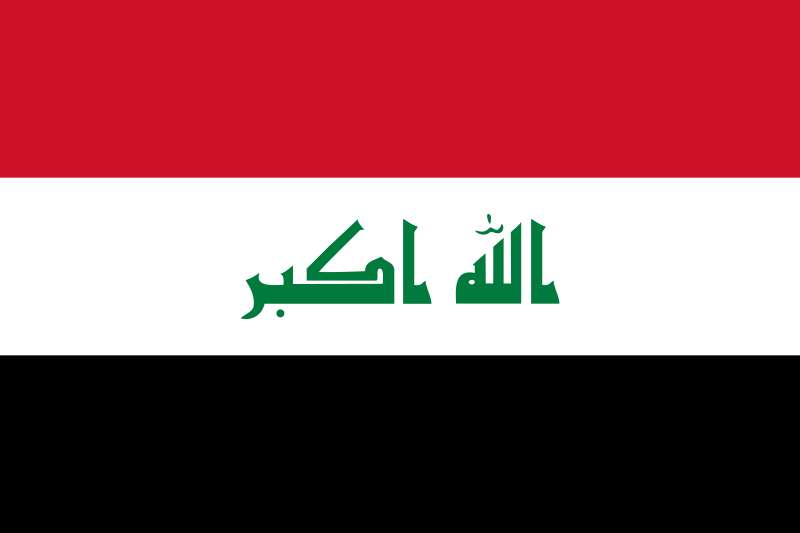NAJAF: The United Nations’ top official in Iraq and the country’s most senior cleric urged authorities on Monday to get “serious” about reforms after anti-government demonstrations that have left hundreds dead.
Mass rallies calling for an overhaul of the ruling system have rocked the capital Baghdad and the Shiite-majority south since October 1 — the largest and deadliest popular movement in Iraq in decades.
The bloody unrest has sparked serious concern from the UN, human rights groups and the White House, which on Sunday called on Baghdad “to halt the violence against protesters” and pass electoral reform.
After weeks of paralysis, Iraq’s top leaders seem to have agreed to keep the system intact, but the UN in Iraq (UNAMI) urged them to enact a host of changes.
These include electoral reforms within two weeks, the prosecution of those responsible for the recent violence as well as of corrupt officials, and the passing of anti-graft laws.
On Monday, UNAMI chief Jeanine Hennis-Plasschaert met the country’s highest Shiite authority, Grand Ayatollah Ali Sistani, in the holy city of Najaf.
She said the seat of Shiite religious power in Iraq, known as the marjaiyah, had stressed that “peaceful demonstrators cannot go home without sufficient reforms” to answer their demands.
“The marjaiyah expressed its concerns that the political forces are not serious enough to carry out such reforms,” said Hennis-Plasschaert.
“If the three authorities — executive, judiciary and legislative — are not able or willing to conduct these reforms decisively, there must be a way to think of a different approach,” she warned without elaborating.
There was no statement attributable directly to Sistani, who is 89 and never appears in public.
In his recent sermons, delivered by a representative, Sistani has described the protesters’ demands as “legitimate” and called for the rallies to be handled with “restraint”.
– Rallies flare up –
In recent days, more than a dozen protesters have been killed as security forces have cracked down on demonstrators.
They have cleared streets and squares in Baghdad, in the port hub of Basra and the southern city of Nasiriyah, where four protesters were shot dead on Sunday.
Security forces there even chased down demonstrators into a children’s hospital and fired tear gas inside.
On Monday, protesters struggled to come out in large numbers there and security forces reopened roads in Basra, stifling attempts to stage sit-ins near the provincial headquarters.
In Baghdad, live rounds rang out in neighbourhoods close to the main protest camp of Tahrir (Liberation) Square.
But thousands of demonstrators took to the streets again in Hillah, Diwaniyah and Kut.
Aside from the crackdown, activists and volunteer medics have described a widening campaign of arrests and intimidation intended to keep them away from protests.
The UN has warned that “a climate of anger and fear has set in,” and its human rights council was to meet later Monday for a periodic review of Iraq’s rights record.
– ‘We want total change’ –
Iraq’s President Barham Saleh had last month proposed an early vote after reforms, but the suggestion seems to have been widely rejected by the political class.
Prime Minister Adel Abdel Mahdi cast them as unrealistic and even firebrand cleric Moqtada Sadr, who first demanded snap elections supervised by the UN, has gone silent.
The initial fissures among the political elite appear to have closed this week following a consensus brokered by Major General Qasem Soleimani, the head of Iran’s Islamic Revolutionary Guard Corps’ foreign operations arm.
Soleimani, who often appears in Baghdad in times of political crisis, has led a series of meetings with Iraq’s top-tier politicians, sources told AFP.
The agreement, they said, included a series of reforms in exchange for keeping the broader system in place.
Those proposals will likely fall short of the demands of protesters, who demand a complete overhaul of a regime they see as deeply corrupt.
Demonstrators say the current system means government jobs are doled out based on bribes or nepotism, shutting out applicants who are politically independent.
Youth make up 60 percent of Iraq’s nearly 40 million people and the unemployment rate among them stands at a staggering 25 percent, according to the World Bank.
One in five people lives below the poverty line, despite the vast oil wealth of OPEC’s second biggest producer.
“We don’t want amendments, we want change — total change,” one protester in Baghdad told AFP on Monday.
“We don’t want this government, or parliament, or any political party.”

